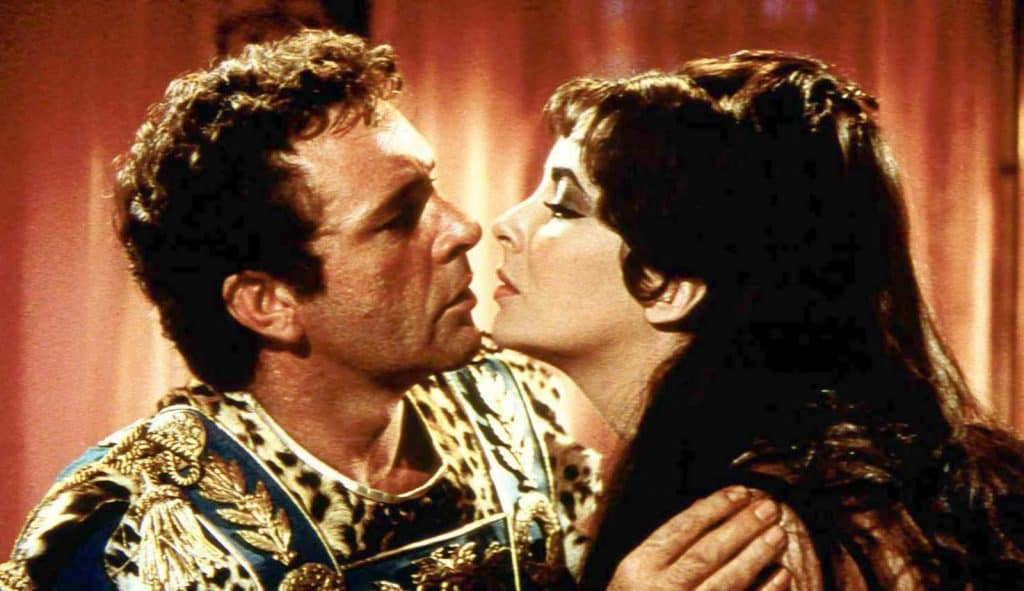Why are so many people suspicious of love, saying that love is unsafe, even so they secretly desire love and fantasize about it? I mean, who does not get hooked somehow on these dramatic love stories that Hollywood brought to the big screen?

Yes, love is not a child’s play as Shakespeare and countless other poets, as well as the Bible and many historians, have reminded us over the centuries.
World literature abounds in stories of lovers caught up in a sea of passion and violence: Daphnis and Chloe (a Greek myth), Shiva and Sati (Indian), Hinemoa and Tutanekai (Nlaori), Emperor Ai and Dong Xian (Chinese), the VhaVhenda lover who was turned into a crocodile (African), and Romeo and Juliet.
Love is as strong as death, its jealousy unyielding as the grave. It burns like blazing fire, like the very flame of the LORD. Many waters cannot quench love; rivers cannot wash it away…
Song of Solomon 8:6
Yet, in almost all even far-flung societies, young lovers talk about passionate love, recount tales of love, sing songs of love, and speak of the longings and anguish of infatuation. And then, when passionate affections clash with parents’ or elders’ wishes, young couples often run away together.
In spite of its dangers, people of all walks of life still ‘fall in love.’ Is that due to a disability? And what is love? A complex, an emotion, a mental construct, a phenomenon? A catchword that needs to be unpacked in order to be understood? Sure, we wrote about all that in our Q&A series on love. But really, can a nonphysical phenomenon such as love be unsafe? How so? Well, the experience of love does affect people’s behavior and well-being, often for better but sometimes for worse.
Love is not only Satisfying

Says philosopher Robert Brown: ‘Love brings an immense amount of satisfaction, but often produces as much pain as pleasure. For love is always subject to frustrations and rejection, and commonly bound together with such dangerous emotions as jealousy, hate, and fear.’
That is why one of the first things people say about love is that it turns easily into hate. Yes, love and hate seem to be opposites or the two sides of a coin. And a coin is flipped easily.
Love, however, is a thing of a different category from hate. Love is much more than a mere positive emotion that people feel toward other people. It is a complex tying-together of many delicate emotions and intentions that two people share with each other.
For instance, to love is to give another the permission to laugh at one, hopefully tenderly, when no one else, not even oneself, has quite that same permission.
It takes an investment of time and effort to build a warm dwelling of trust and belonging for any two romantic lovers. The resulting bonded relationship protects their love from the elements of nature — from rivals and outright predators.
Romantic love, the initial liking, the affection, the esteem, might be reciprocated or not. Yet, even if reciprocated, one might not be the only one for the other at that time — or later on. The other might keep multiple suitors around, for a while, so as to learn who is the most beneficial, as a sort-of Plan B.
Then, an earthquake or a fire — analogous to rejection or infidelity — can make rubble out of that budding dwelling in seconds and leave the one who had remained in faith exposed, nacked, and humiliated.
Exclusivity of Love
For most, ‘being in love’ implies the fair expectation of intimate exclusivity between lovers, and that expectation is agreed-upon in a then bonded relationship. Exclusivity, seemingly, is in the nature of passionate love that takes into account one’s desire for undivided attention. Can we be in love with two or three additional others to the same extent as with that Significant Other? Hardly.
Sure, there are polyamorist folks out there, but their relationships are hardly characterizable as anything other than erotic love. Polygamy is now outlawed in the Western World, but it was never just an insignificant relationship model. Men, some feminist say, cannot love to begin with and are most inclined to be polyamorists. Women, seeking shelter from the storm, can find life to be rich in acquiescence. This is what incensed Simone de Beauvoir so much. Love and life, life and love aren’t a child’s playground.
Obsession and Self-Abandonment
Is receiving undivided, unfiltered, unreserved attention in a passionate love relationship a fair expectation or desirable at all? Such a relationship can, over time, become unbearable to the recipient of that attention. When attentive love turns into an obsession with the other, it may become tyrannical. Especially when this obsessive love goes so far as to also lead to utter self-abandonment.
Just as bad is the not unreal scenario whereas obsession, as well as self-abandonment, are required of a lover by a conceited other. Perhaps worse are situations where lovers enter into a mutual obsessive, self-abandoning relationship of sexual experiments and various self-indulgences.

It is doubtful that unbalanced or ungrounded relationships such as these provide fulfillment for both the involved over the many years of their lives. Of all the kinds of love, erotic love is understood to be the most unsafe. However, that may be more so because of the thrill-seeking dispositions of people usurping erotic love and less so because of erotic love’s natural allure. There are and always will be lovers who go for high-flying ecstasy rather than modest delights. It’s not intelligible to knock erotic love, or love in general, as it is not intelligible to knock a scenic cliff.
Even people in real love, that fairly stable relationship often formalized as marriage, tend to blame love when the relationship begins to fall apart. It isn’t love’s fault, though, that men often go through a midlife crisis — as described by C.G. Jung. Love then is an easy scapegoat.
However, when things go really badly, love seems to turn into hate. But it does not, as love rather gets crushed in the rubble of the dwelling. Hate, then, is a new phenomenon arising out of a terribly hurt psyche. We need not say more, other than acknowledge that many folks may secretly dream of all kinds of love, but in woke life try to keep a safe distance from such potential trouble.
They may turn to the bliss of God’s love, especially after a hurtful disappointment. God’s love is safer and readily available to all who ask. In the nostalgia of some recalled or fantasized infant security, they will find themselves in the strong arms of a loving parent.
On the other hand, there is the situation where one might get simply stiffed in the relationship by the other, held at a fair distance after being initially enticed with tenderness. Once the first child is born, a mate has a perhaps more promising object of love to lavish attention upon.
Others may try to stay in their ‘safe’ self-love or narcissism forever — never ever taking any chances at love. Others yet may accept the life of a Doppelgänger, maintaining a respectable marriage while entertaining promiscuous relationships on the side.
It is important to do this because it breaks down human self-delusion and isolation.
It is important to do this because in doing so we do justice to our own complexity.
It is important to do this because we can count on so few people to go that hard way with us.Adrienne Rich in On Lies, Secrets, and Silence
All personal relationships necessarily give rise to affective and material dependencies between the related. Says philosopher Robert Nozick in his essay Love’s Bond ‘what all types of love have in common is that the other person’s well-being becomes our own.’ Marriage is a personal relationship bracketed by a social contract, so as to protect the new, vulnerable bond and the couple from harming themselves and each other.
It is not only the possibilities of infidelity that are scaring people. Getting into a love relationship in the first place is already a leap of faith for many. Especially men feel that they are somehow in control of their life and cherish life’s apparent choices. The prospects of ‘falling in love,’ of ‘being in love,’ or even only entering into a companionate relationship — as in most arranged marriages, causes concerns as these likely entail the loss of some self-control, the loss of some autonomy.
Entering into an interdependent relationship with another based on passions or love or friendship or even only duty is therefore seldom taken lightly. Sure, for the person who has ‘fallen in love’ — that’s it. Modern courtship, perhaps, could have helped. But is it really safe to start trusting a relatively unknown down to the bottom of one’s heart, not just skin deep, but down to the marrow of the bone?
Will the other come to dislike the trusting single, after learning about his or her innermost follies, his or her innermost frailties? Will the other laugh at one or even cry? Short of outright hate, feelings like contempt and loathing can emerge, grow and fester under the skin. That is what many actually mean when they say that love can turn to hate.
Will the other hold any follies and frailties against the trusting mate after the relationship has gone bust — or already during the relationship so as to blackmail for acquiescence?

Luckily, revenge porn websites are now shut down by law in the U.S. Yes, love is not child’s play, it never was, it never will be. Promiscuous lovers certainly accept high risks, it is all part of the thrill for them. However, even singles interested in long-term relationships are vulnerable to the vicissitudes of life, no one really is exempt from the uncertainties and ambiguities inherent in relationships.
But is all that reason enough to outlaw love, to erase references to love in encyclopedias, to burn all books about love, to institutionalize nothing but intimate accommodations based on sympathy, empathy, or compassion? Welcome to an Orwellian world.
Please give love a chance, says philosopher Alain Badiou.
Erotic love is very risky, yes, as it usually does not involve any long-term aspirations as to its lasting. Romantic love is risky, yes, as the lovers may not even know their own and the real self of the other yet. However, once these loves survive and mature, and come to further manifest as real love, the remaining risks of love are as low as those inherent in arranged marriages.
Arranged marriages, those remnants of traditional patriarchy, focus more on the utility of the relationship for the sake of family and lineage. Love is typically an afterthought in arranged marriages. In the aftermath of the matching, the couple finds itself released by parents and elders to engage in procreational and even recreational sex — in hopes that such erotic encounter will engender the additional sympathies needed for the relationship to last. What if love never happens? How delightful is that?
On Friendships
However, it is not only the passionate, intimate relationship involving love that may spell trouble. Any type of relationship, even friendships, can go bad and hurt one or all of the involved.
Advises German philosopher Immanuel Kant: ‘The principle of mutual love admonishes men constantly to come nearer to one another; that of the respect which they owe each other, to keep themselves at a distance from one another.’
Kant had a few more interesting things to say about friendship. To him, ‘friendship is a man’s refuge in this world from his distrust of his fellows.’ Kant, always being a rationalist, recommended that ‘we must so conduct ourselves towards a friend that there is no harm done if he should turn into an enemy.’
Battered and bruised or bruised and battered, it is all the same. That is how many of us will go through life. To say that a disappointing love does not color one’s love life, or has not colored one’s love life over the years would be outright denial.
However, bruised and battered is not the same as being permanently injured to the point of being disadvantaged or even disabled. We learn to function with our bruises, even broken bones heal over very nicely, and we may wear any scars like badges of honor. ‘If it doesn’t kill us, it makes us stronger.’ And ‘the show must go on,’ they say.
So, give love a chance, you only live once. Many, actually, do take this too-easy-to-pronounce advice to heart. A final advise: just do not be the one who gets really hurt in the end, in case the relationship does not work out as hoped for. Modern courtship is an approach there to help.
The first love is likely not going to be the last love. It would be wonderful if that could be the case for everybody. What are the chances of that? If safety and comfort are one’s utmost and sole concerns, one should have stayed in the mother’s womb.
